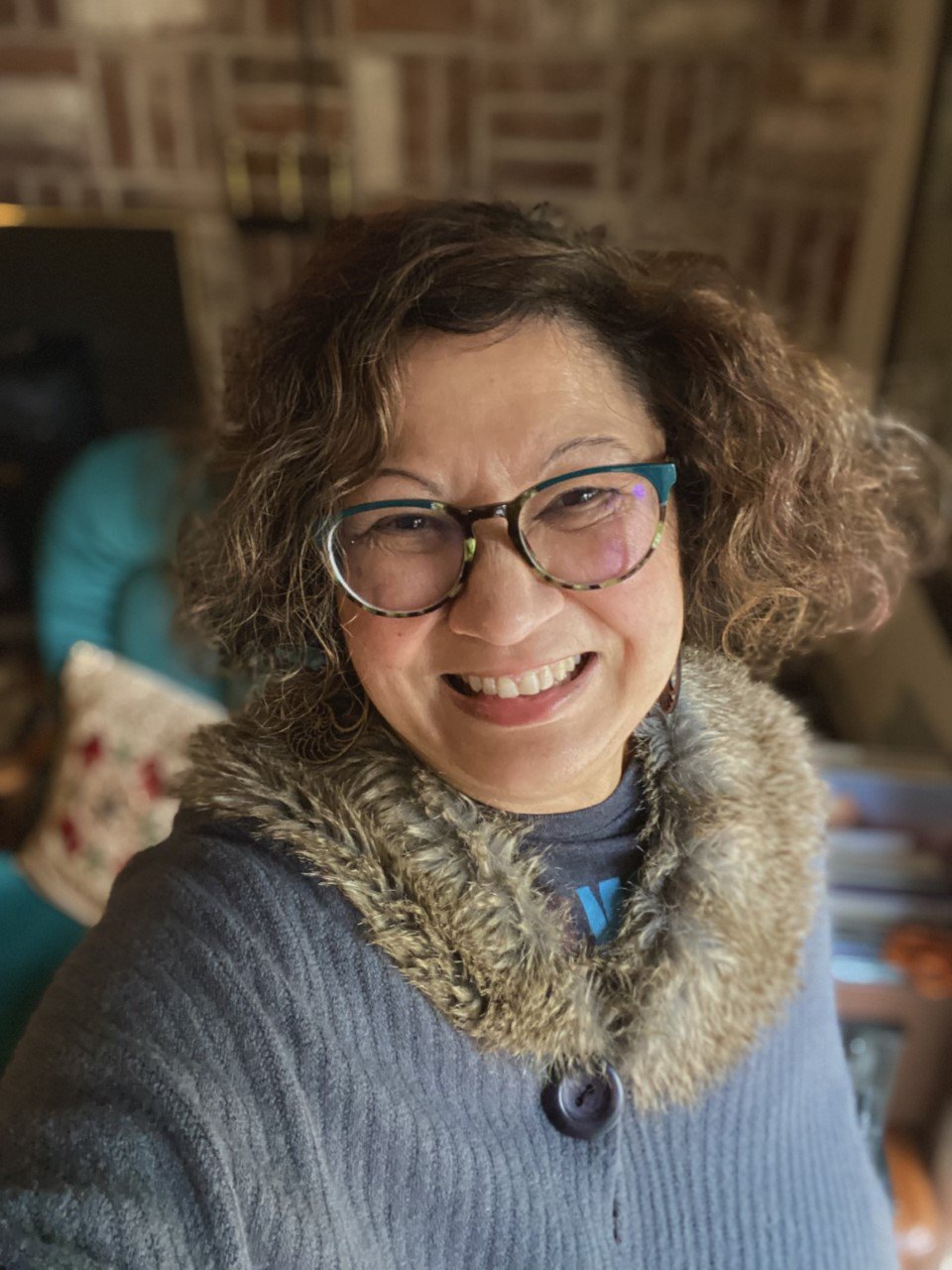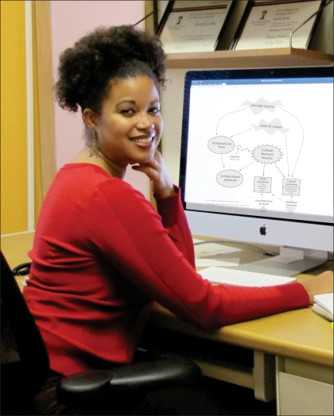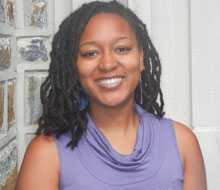“If we had known you were pregnant, we might not have let you into this program — and we would have made a mistake.”
“This is your first child? Maybe you should drop this class. Statistics is a challenging course, and when I had my first child …”
“Your second child? Congratulations! That’s enough now. Two is enough.”
Such comments made it clear to me that academic spaces have firm expectations that career and motherhood are separate. I couldn’t help but also wonder how my race and gender shaped the narrative that people wrote about my choices.
The social ownership of black women’s wombs is not new. Scholars like Dorothy Roberts, a professor of Africana studies, law and sociology at the University of Pennsylvania, argue that black women’s mothering has been denied and regulated for centuries — from slave owners’ economic stake in black women’s fertility to the social politics of excluding black women from any dialogue about reproductive rights. Everyone has an opinion on how to control black motherhood, leaving us conflicted and stressed in workplaces across the United States. In academe, the alleged home of intellect and forward thinking, I was wrong to expect more.
As a medical sociologist, I am hyperaware of the health problems facing black mothers. Contemporary statistics on the mortality rates of black mothers and their infants are startling. Black women are two to three times more likely to die in childbirth than white women, and black mothers are more likely to have preterm deliveries than white women.
Sociologists admit it is typically difficult to disentangle the effects of race and socioeconomic status on a given social problem. But when it comes to motherhood, it is clear that unequal outcomes are driven by race.
For example, research suggests that increased income and education are associated with lower rates of preterm births for white women but not for black women, and that infants born to low-income white mothers have better outcomes than those born to high-income black mothers. And it’s more than just differential access to community resources, as the data also show that high-income black mothers living in white neighborhoods are actually more likely to have low-birth-weight babies than high-income white mothers in white neighborhoods and low-income black mothers in black neighborhoods. The stress of racism, then, has an impact on black mothers that affects their health and that of their unborn children.
When I started graduate school, I felt prepared for the stressors many black women attending predominantly white institutions face, and I was not naïve about how challenging this experience would be. Graduate school is a time of heightened precarity, intellectual insecurity and stress. Black students may be more likely than white students to deal with complex family and personal situations during their graduate career, and they are also less likely to receive adequate mentorship.
Although I certainly dealt with the challenges of being a first-generation Ph.D. student, I had mentors who set the bar high yet created space for my academic babies when I chose to start my family during graduate school. One reason I made this choice is the widespread perception among academic women that graduate school is the best time to have children. If that is true, then academe needs a lot more work.
One week after having my first child by C-section, I was sitting on my living room floor doing a statistics problem set with the help of two colleagues: one studying with me, while the other held my newborn. Just two weeks after the surgery, I was back in classes — theory, methods and statistics. It was physically and emotionally painful, but unfortunately, if I wanted to be taken seriously as an aspiring academic, I felt it was my only choice. At that point, I understood two things about my academic path: racialized motherhood comes with certain expectations, and mainstream organizations were not built for mothers.
The university’s maternity leave policy was not useful for a first-year graduate student. At the time, I could have taken up to six weeks — which is half the semester. I’m still not sure how someone can take half a class, so if I had used this leave, I don’t know how I would have made up six weeks of missed course work. And since first-year courses are consecutive and sequential (for example, Research Methods is a yearlong course with a fall and spring component), I might have had to defer my first year and start graduate school with a different cohort.
Moreover, looming in the background of my decisions was the reality that mothers face social sanctions in the workplace because of the perception that they are less competent than women without children — even though there is no clear evidence supporting this perception. This institutionalized maternity leave policy was, in practice, impossible to use, and the knowledge that informal sanctions from peers and colleagues are harsher for mothers made me push harder.
Black mothers must be superwomen to be taken seriously as scholars and professionals. The stress of racism and the pressures of academe mean that mothers are constantly forced to prove their commitment to research and ability to do the work. But that kind of active coping — working harder to compensate for the strain of discrimination — can be harmful. In his research on John Henryism, Sherman James, a professor emeritus of public policy at Duke University and an expert in racial and ethnic disparities in health care, shows that active coping in the face of psychosocial stressors leads to poor health outcomes. Yet my research agenda led me to move to the Dominican Republic, family in tow, for 10 months so I could complete dissertation fieldwork. I was (and remain) committed to academic research, but what is the price for proving we belong in a place that was not created for us?
For the black mothers in academe who are working hard and wiping noses, I’d like to share a few things that I learned along the way. First, reject the superwoman label. It presumes we can do it alone without self-care. I have a supportive partner, friends and family, tough and compassionate mentors, and a university policy that subsidized some of the cost of child care during graduate school. I am impressive, but I am not superwoman, and I did not do it alone.
Second, be a hustler. Because of motherhood, I cannot always participate in informal gatherings leading to professional collaborations. Because of race and gender, perhaps, I may not be invited. So I reach out to colleagues one on one and, together, we can set the personal and professional terms of engagement.
Next, be attuned to your own needs (mentorship, writing groups, sleep, yoga …) and prioritize plans to get those needs met.
Finally, check out Dean Ashby’s suggestions for overcoming impostor syndrome.
You’ve got this.

 Reshmi Dutt-Ballerstadt is a professor of English and also co-coordinates the gender studies program at Linfield College in Oregon. She is the author of The Postcolonial Citizen: The Intellectual Migrant. Her most recent pieces of public writing are “
Reshmi Dutt-Ballerstadt is a professor of English and also co-coordinates the gender studies program at Linfield College in Oregon. She is the author of The Postcolonial Citizen: The Intellectual Migrant. Her most recent pieces of public writing are “

 Reshmi Dutt-Ballerstadt is a professor of English and also co-coordinates the gender studies program at Linfield College in Oregon. She is the author of The Postcolonial Citizen: The Intellectual Migrant. Her most recent pieces of public writing are “
Reshmi Dutt-Ballerstadt is a professor of English and also co-coordinates the gender studies program at Linfield College in Oregon. She is the author of The Postcolonial Citizen: The Intellectual Migrant. Her most recent pieces of public writing are “